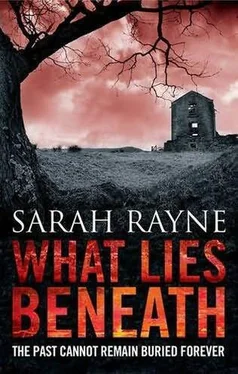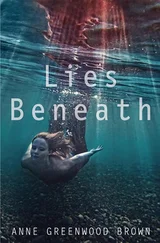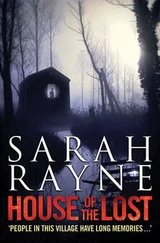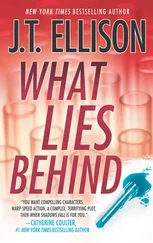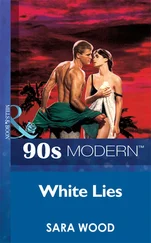Gil fell into the way of lending a hand in the hospital block, which was bracing itself for an influx of wounded men. On several occasions he was found to be absent from his bedroom all night; challenged by Crispian, Gil demanded to know where did Crispian think he had been.
‘Helping in the infirmary, I suppose.’
‘You have such a beautiful innocent nature,’ said Gil. ‘Don’t you know that nurses work in infirmaries, and nurses are frequently attractive and very affectionate.’
‘You’re spending some of the nights with a nurse?’
‘Several of the nurses. I’ve never practised exclusivity.’
‘Gil, there’s a war raging within a few miles of us!’
‘All the more reason for a little light entertainment,’ said Gil.
Jamie had spent more time in the town than the other two; he got to know some of the Jewish community, and talked with the scholars, printers and musicians.
‘He’ll end in converting to Judaism, if you’re not careful,’ said Gil.
‘I think he’s just interested in their culture and knowledge,’ said Crispian. ‘He’s very like his father, my uncle Colm. You never met Colm, did you?’
‘I did, actually. Those Christmas house parties at Cadence Manor. I was asked to a couple, if you remember. Colm generally shut himself away from the frivolities, but I met him.’
‘I’d forgotten that,’ said Crispian. ‘Colm’s spiritual home is probably an Oxford college or a library somewhere, and Jamie’s the same. He shouldn’t really be working at Cadences at all.’
‘At the moment I’d give a good deal to be cleaning the lavatories at Cadences,’ said Gil. ‘Anywhere but here.’
Once or twice they accompanied Jamie to performances by one of the choral societies within Edirne. Seeing Jamie rapt and silent in the cascades of the unfamiliar music, Crispian thought: I shouldn’t have let him come on this mad voyage in the first place. And then, as the music poured out, he gave himself up to it, finding it moving and beautiful. Like balm anointing the soul, he thought. Like a silencing hand laid over a discordance. The images of home came strongly and painfully to him: London with its clatter and bustle and impatience; the oak-panelled rooms of Cadences Bank, with their air of quiet activity; Priors Bramley and the old manor house; the scents of the Oxfordshire meadows; the village street, with the smell of freshly baked bread; the serene old church behind the lich-gate, with dappled sunlight lying across the grass…
He spent a large part of each day with his father, but he was not sure if his father knew who he was – or even if he knew Crispian was there. One of the attendants found an old Bath chair and wheeled Julius outside to enjoy the sunshine, even taking him into Edirne’s centre. Crispian was grateful for this, and several times wheeled the Bath chair himself, sitting in one of the ancient squares with the mosques and the glimpses of onion domes, trying to describe the surroundings to his father using the skin-writing. Sometimes he thought there was a flicker of understanding, and once or twice he thought he saw a glint of sly malevolence in the sightless eyes.
‘I don’t think there’s any sight left to him,’ said Raif, with whom they had become friendly by this time. ‘I think the disease is too deep into his brain now.’
‘But you can’t be sure there’s no sight?’
‘Not completely, no.’
For most of the time Julius lay on his narrow bed in a side room of the infirmary, staring blindly up at the ceiling. But as the weeks went by he became prone to fierce rages, rearing up from the bed and blundering round the little room, clutching wildly at whatever came within reach and hurling it from him. Sometimes the rages lasted for several hours, after which he would subside in a corner of the room, crouching in a huddle, covering his face with his hands, and sobbing.
The second time this happened Raif came in search of Crispian.
‘I regret,’ he said, ‘that you won’t like the methods we’ve used to restrain him. But last time we were afraid he would injure himself and we wouldn’t be able to get near enough to treat him. Certainly we couldn’t get near him to administer any kind of sedative. The strength of a person in the grip of genuine mania—’ He broke off and shrugged. ‘You will have experienced that for yourselves already, I suppose. The strength of the insane can be as much as the strength of three men put together.’
Crispian said, ‘What, exactly, have you done?’
‘You had better see. He’s not in his usual room, because… well, you will see. Perhaps you would prefer one of your companions to come with you?’
Crispian was deeply grateful for Gil’s presence that evening, but, as they went along the narrow corridors and down a flight of shallow stone steps, he was aware of a churning apprehension and he was very conscious that they were inside a place whose history stretched back into the days when caliphs and sultans had thought nothing of inflicting what was called exquisite torture on anyone transgressing their laws.
The passages were lit by flaring torches thrust into wall sconces. Edirne had some electricity but it was erratic and this was one of the times it had failed. Dark shadows danced grotesquely across the walls as they went deeper.
As the doctor opened a door halfway along a stone corridor, Edirne’s dark past seemed to surge forward and to Crispian’s first horrified sight it was as if Julius had fallen into the hands of those long-ago avengers. He was seated on the floor; there were blankets and cushions for him, but thick iron gyves with chains attached had been clamped round his wrists and ankles and the ends of the chains were driven into the wall behind him.
‘He’s chained up,’ said Crispian, turning to Raif. ‘Did you have to do that to him?’
But even as he said the words, Julius made a snarling bestial sound, and lunged forward as if aware of their presence, as if he intended to attack whoever was there. The chains tautened at once, scraping across the floor with a sound that made Crispian flinch.
‘It’s not often we’re forced to make use of the fort’s ancient equipment,’ said Raif defensively, ‘but we could see no other way. Truly, we shall release him as soon as this seizure passes. We’ll have to keep him more heavily sedated from then on.’
‘He’s right,’ said Gil quietly. ‘There was nothing else they could have done. Crispian, come away. He’ll come out of this – he’ll become docile again.’
‘But we can’t leave him down here in the dark…’
‘It’s dark for him anyway,’ said Gil. ‘It’s forever dark, as far as he’s concerned,’ and this time there was such infinite pity in his voice that Crispian looked at him in surprise.
‘Mr Martlet is right,’ said Raif. ‘The mania will work itself out, and Sir Julius will be submissive again.’
Submissive. That dreadful, almost childlike, obedience. Crispian said, ‘Can I stay with him until he comes out of it?’
The doctor hesitated, and it was Gil who said, ‘Better not. It won’t make any difference to him.’
‘Again, Mr Martlet is right,’ said Raif.
‘All right. Will you tell me when he’s taken back to his own room?’
‘Of course.’
They went out and, without speaking, walked back along the dim passageways. But when the doctor left them to go to the main infirmary, Gil reached for Crispian’s hand, and for the first time Crispian did not push him away.
He said, ‘Are you spending tonight with one of your nurse friends?’
‘Not necessarily.’ Gil paused and turned to look at Crispian. They were much of a height; in the flickering light, tiny red pinpoints of light seemed to dance in Gil’s eyes.
Читать дальше
